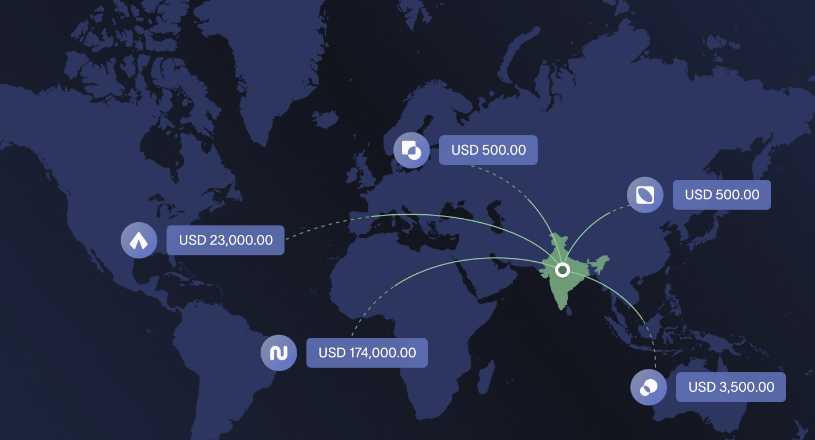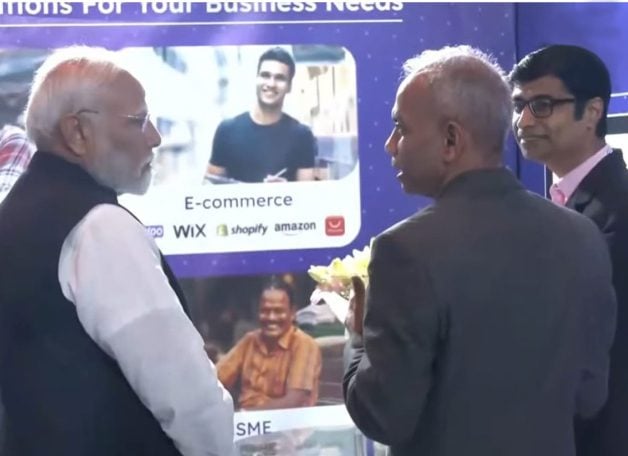Most businesses dread slow international payments. About 60% of companies struggle with these delays. They don’t just test your patience; they can cost you money. Think of lost deals, strained relationships, and unexpected late fees.
No business should wait days or weeks for money to clear across borders. Speed and reliability are key, whether you’re paying suppliers, making global business payments, or handling regular transfers. While old banks can take up to five business days, today’s payment systems can finish transfers in under 24 hours.
The good news? You can avoid most of these delays. This blog offers proven ways to speed up your international payments. Let’s make your global money moves quick and dependable.
Why Are International Payments So Tricky?
You might think sending money to another country is just like sending it locally, but it’s much more complex. Let’s look at the main reasons:
1. Diverse Payment Systems and Infrastructures: The world’s financial systems don’t have one single standard. Each country often uses its own unique payment methods, rules, and technologies. For example, if you’re in India, you often use two-factor authentication (2FA) for online payments, which sends a code to your phone. This system might not work the same way in the USA. When money moves between these different systems, these differences can cause payments to fail. Modern payment platforms need to be flexible enough to connect these systems and adapt to new rules.
2. Evolving Regulatory Standards and Global Compliance: Every country has its own financial laws. These include rules for Anti-Money Laundering (AML) and “Know Your Customer” (KYC)”. These rules can limit how much money you can send, demand specific documents to prove a transfer is legitimate, and affect how fraud is prevented. Not following these rules, even by accident, often causes payment holds.
3. Currency Exchange Dynamics: Changing one currency to another is a basic part of international payments, but it adds a lot of complexity. Changing exchange rates can lead to unexpected costs or less money being received. Also, conversion fees, which are sometimes not clear, can reduce the amount of money transferred. Truly effective payment solutions make exchange rates clear and openly show all related fees.
Common Obstacles Leading to Payment Holds
The complexities we just discussed often lead to real problems that cause payments to be held:
- High Costs: Many steps are involved in international payments. Each step can have processing fees, and conversion charges can significantly reduce the money the recipient gets. This directly affects how much profit businesses make and the overall value for individuals.
- Slow Transactions: Traditional bank transfers across borders can take anywhere from 2 to 5 business days to complete. Delays often happen because many banks are involved, and they might be in different time zones or have different public holidays.
- Lack of Transparency: It’s often very hard to track an international payment or confirm that it’s been successfully received. This lack of clear visibility can lead to arguments and more delays.
- Security Concerns and Fraud Risk: International payments are a major target for fraud. This is because they are complex, involve many banks, and have different rules in different countries.
How to Prevent Foreign Payment Holds
1. Choose the Right Payment Platform
Picking the best payment platform is crucial for smooth international transactions. Here’s how to find what fits your business.
Old vs. New Payment Solutions Traditional payment methods often cost more and take longer. They usually involve more manual work, which can lead to mistakes. Digital payment platforms are better. They process payments in 1-3 business days and track everything accurately.
Key Features to Look For: A good international payment service needs these features:
- Support for many currencies (over 135)
- Real-time exchange rate updates
- Top-level security (like PCI DSS compliance)
- Customer support available 24/7
- Systems that automatically match payments
- Easy to connect with other software
Your chosen platform should connect smoothly with your current business tools. Modern solutions can link directly to your accounting software or inventory management systems. This connection automates payments and reduces manual data entry. The result is fewer errors and faster processing.
The best platforms support many payment methods while keeping security high. Solutions that let you connect using API and SDK options can set you up in hours, not days.
2. Automate Your Payment Workflows
Automating your payment processes can greatly reduce the time it takes and improve accuracy. Here’s a quick way to set up an automated payment system.
Set Up Payment Templates Use standard templates for regular international payments. This saves time and cuts down on mistakes. You pick the payment type and add key details like who gets paid, bank details, and currency. These templates store your common payment info. This means you can quickly start new transfers without typing details again and again.
Create Approval Processes A well-designed approval process makes your payment system secure and compliant. Your process should include:
- Starting a payment request
- Reviewing and approving by chosen staff
- Processing the payment and keeping records
- Matching transactions and reporting
Set clear rules for different payment amounts. To avoid delays, make sure you have backup approvers for when team members are away.
Automated Reconciliation Systems Modern systems for matching payments can make things 60-80% more efficient than doing it by hand. These systems automatically match transactions, find issues, and keep records. Automated matching helps you:
- Handle many transactions quickly
- Reduce write-offs by up to 75%
- Get up-to-the-minute financial reports
- Keep better internal controls
These automation tools greatly reduce manual tasks, which often take up to 30% of a finance team’s time. Your team can then focus on important strategies, knowing international payments are accurate and on time.
3. Use Modern Banking Solutions
Modern banking is far beyond old money transfers. Today’s financial tools make your international payments fast and easy.
Use Multi-Currency Accounts Multi-currency accounts let you handle up to 40 currencies in one place. This makes sending money abroad much simpler. These accounts act as your central money hub. You can receive, keep, and send money across borders without constantly changing currencies. Your banking app lets you check current rates and set alerts for when rates change.
Benefits of Digital Wallets Digital wallets have changed how we pay. They offer:
- Money available 24/7
- Better security with encryption
- Detailed tracking of your spending
- Use them almost anywhere in the world
Real-Time Payment Networks Real-time payment networks have completely changed international transfers. By 2024, over 80 countries either have them or plan to. These networks let you send money instantly, any day of the year.
The result? Your payments reach their destination in seconds. They still follow all international rules. Modern payment networks handle various transfer types, from bank transfers to mobile wallet payments. This wide range of choices helps you pick the fastest way to send money internationally without losing security or speed.
4. Monitor and Optimize Payment Routes
Payment corridors are key to international money transfers. They are like financial highways connecting markets worldwide. Each route has unique rules and varying complexity.
Understanding Payment Corridors How your money travels depends on the currencies you choose. Major pairs like USD/GBP often have shorter paths with fewer intermediary banks. Less common currencies need more bank stops. This adds time and costs to your transfer.
Tracking Transfer Performance You need to constantly check your payment success rates. This helps you find problems early. Key things to track:
- Success rates of payments in different routes
- Time taken to process payments by region
- Costs for specific routes
- Banks involved in the middle
Route Optimization Strategies Smart routing technology picks the best path for your payment. Modern systems automatically send transactions through services that give the best results at the lowest costs. This smart approach reduces disruptions and prevents failed payments that could upset your customers.
Route optimization makes payment processing smoother, especially for large transfers. You can keep steady payment speeds without spending too much. If one service fails, your system quickly finds new routes through other providers. This keeps your business running smoothly.
5. Master Currency Conversion Timing
Currency changes greatly affect your international payment costs. Smart timing of currency conversions helps you get the most value.
Monitoring Exchange Rate Trends Market changes and global events cause constant shifts in exchange rates. Peak trading hours offer the best chances to convert money well, especially between 11:00 AM and 6:00 PM EST on weekdays. Key economic factors that affect currency values include:
- Changes in interest rates
- Economic growth rates
- Trade balance reports
- Actions by central banks
Setting Up Rate Alerts Rate alerts let you take advantage of good exchange rates without watching them constantly. Modern payment platforms send you live notifications when currencies reach your target rates. You get instant email or mobile updates. This allows you to act fast when rates are good.
Hedging Strategies for Large Transfers Large international transfers need hedging strategies. These protect you against currency risks. Forward contracts let you lock in current exchange rates for future use. This strategy helps you:
- Reduce transaction risk
- Create predictable costs
- Protect against currency appreciation
- Lower budget uncertainty
Currency swaps offer longer-term protection, especially for foreign investments or regular payments. The best hedging strategies depend on your specific payment patterns and how much risk you can handle.
Conclusion: Empowering Your Global Payments
Cross-border payments are a vital part of the global economy, yet they are often stopped by frustrating delays and holds. Understanding why these holds happen—from different payment systems and complex rules to changing currencies and security concerns—is the first crucial step to preventing them.
By carefully checking payment details, understanding and following compliance rules, smartly using advanced payment platforms, and improving your internal payment processes, businesses and individuals can greatly reduce the chance of foreign payment holds. The goal is to move beyond slow, expensive, and unclear traditional methods towards an efficient, cost-effective, and truly customer-focused international payment experience. With the right strategies and modern tools, cross-border transactions can change from a source of frustration into a seamless way to connect globally and do business.
Ready to experience faster, more affordable, and completely hassle-free international payments? Say goodbye to hidden fees and frustrating delays.
Discover how BRISKPE can empower your global growth – Get Started Now!








